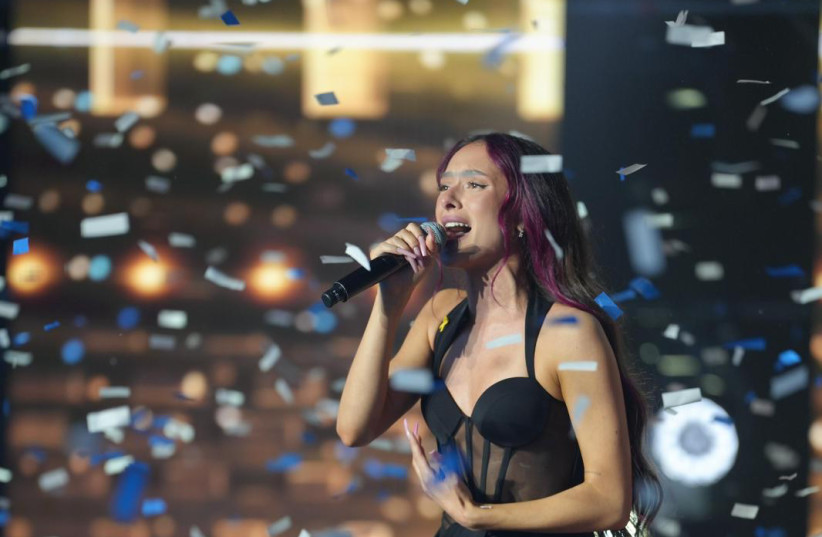In an emotional finale of the talent competition, The Next Star (HaKochav HaBa), which was broadcast on Keshet 12 on Tuesday night, Eden Golan was selected to represent Israel at Eurovision in Malmo, Sweden in May.
Eden Golan, whose family moved from Israel to Russia when she was six and moved back here two years ago, already has a professional career abroad and her polished initial audition drew an unprecedented 100% from the judges and audience. In her last performance on Tuesday, she sang Aerosmith’s “Don’t Want to Miss a Thing.” As she reprised the song after her win, she dedicated it to the hostages held by Hamas and their families.
Mika Moshe came in third and Or Cohen was second. The jurors were singers Keren Peles, Assaf Amdursky, Itay Levy, Shiri Maimon, Ran Danker, and Eden Hasson and audience votes were also counted when choosing the winner.

It was a season of lyrical expressions of sadness and rousing anthems of resilience. The tragedy of the war hit home for the participants on the show when Shauli Greenglick, a combat officer in the Nahal Brigade, who competed in uniform when he was home from the front, was killed in battle in the north of the Gaza Strip in December. Greenglick performed Hanan Ben Ari’s “Blind Bat,” for his audition and impressed the judges, guaranteeing him a spot in further rounds. In an emotional tribute, part of Greenglick’s audition was replayed his family was brought onstage to sing along to a recording that was found of him singing, “In the End, Everything Passes” by Omer Adam, that he was planning to perform in the next round. Several members of the jury and hosts Rotem Sela and Assi Azar teared up during this performance.
The competition was delayed due to the outbreak of the war but began broadcasting in late October. There have been calls by some European politicians, as well as artists in Finland, Norway, and Ireland to ban Israel from taking part in Eurovision this year, because Israel has chosen to fight back against Hamas following the October 7 massacre. But the European Broadcasting Union (EBU), which sponsors the contest, has said that Eurovision is not a competition between governments but artists who are presented by each country’s broadcasting authority. In a statement, the EBU said in January, “The Eurovision Song Contest is a competition between public service organizations from across Europe and the Middle East that are members of the European Broadcasting Union (EBU). It is a competition for broadcasters – not governments – and the Israeli broadcaster has been participating for 50 years.” The competition must be “an apolitical event that unites audiences around the world through music.”
Israel's Eurovision legacy
Noa Kirel, who represented Israel last year at Eurovision in Liverpool, singing, “Unicorn,” appeared on the broadcast Tuesday night, performing “Chai,” an upbeat anthem to Jewish resilience that song that Ofra Haza sang at Eurovision in 1983, for a second-place finish. In tribute to the costumes worn by Haza’s backup dancers in her Eurovision performance, Kirel wore a yellow pantsuit.
Israel began taking part in Eurovision in 1973 and took home the top prize four times: In 1978 and 1979, with wins for Izhar Cohen and the Alphabeta, with the song “A-Ba-Ni-Bi” and Milk and Honey, with “Hallelujah,” respectively, and then again in 1998 with International’s “Diva,” and most recently in 2018, when Netta Barzilai became Israel’s fourth Eurovision winner with her rousing rendition of “Toy,” a self-empowerment anthem.
